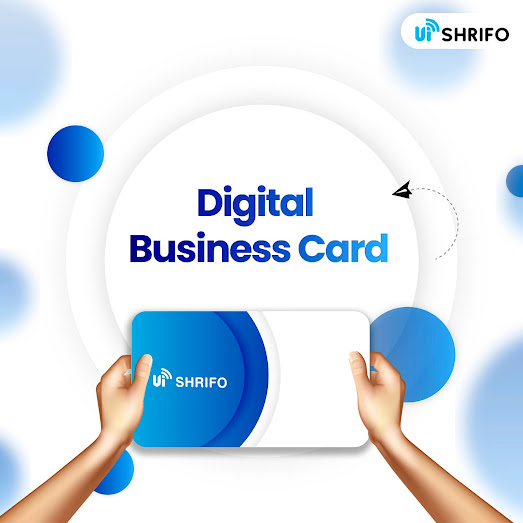Going Paperless: The Eco-Friendly Impact of Digital Business Cards.
In an age marked by digital innovation and growing environmental awareness, the shift towards sustainability has permeated various aspects of our lives. This evolution is particularly evident in the realm of networking, where the traditional exchange of paper business cards is being replaced by the emergence of digital business cards. These dynamic alternatives, often referred to as smart visiting cards or NFC digital business cards, not only revolutionize how we network but also contribute to a greener, more sustainable world.
The Environmental Toll of Paper Business Cards:
The Hidden Costs of Tradition:
Traditional paper business cards have been a staple in professional interactions for decades. However, the seemingly innocuous act of exchanging paper cards has a hidden ecological impact. Paper production involves cutting down trees, consuming energy, and emitting carbon dioxide. The printing process further compounds the environmental toll, with inks and chemicals contributing to pollution.
Waste Generation and Deforestation:
Moreover, the lifespan of a paper business card is limited. It's not uncommon for these cards to be discarded, misplaced, or simply forgotten in wallets and desk drawers. This cycle of production, distribution, and disposal generates a considerable amount of waste, exacerbating the already alarming global waste crisis. Additionally, the demand for paper contributes to deforestation, leading to the loss of biodiversity and disruption of ecosystems.
The Eco-Friendly Revolution: Digital Business Cards:
1. Reducing Paper Consumption:
Digital business cards present a solution that aligns seamlessly with the principles of sustainability. By going digital, you eliminate the need for paper production and printing. The transfer of information shifts from physical to virtual, resulting in a significant reduction in paper consumption. This small change can collectively substantially impact conserving forests and natural resources.
2. Carbon Footprint Reduction:
The production and transportation of paper business cards contribute to carbon emissions. On the contrary, digital business cards have a minimal environmental footprint. The absence of physical production and transportation directly translates to lower carbon emissions, contributing to the global effort to mitigate climate change.
3. Minimizing Waste Generation:
The ephemeral nature of paper business cards contributes to their swift disposal. Digital business cards, however, persistently reside within digital platforms, reducing the generation of waste. This shift from physical to digital not only conserves resources but also decreases the burden on waste management systems.
4. Eco-Conscious Networking:
Adopting NFC digital business cards or other smart visiting card alternatives demonstrates your commitment to sustainable practices. By opting for an eco-friendly networking approach, you inspire others to follow suit and contribute to the larger mission of reducing our ecological impact.
5. A Global Perspective:
In an interconnected world, the benefits of digital business cards extend beyond individual actions. The collective shift towards digital alternatives has the potential to lead to a drastic reduction in paper consumption on a global scale. This, in turn, contributes to the preservation of forests, the protection of biodiversity, and the mitigation of environmental degradation.
Embracing Sustainable Networking:
The transition from paper business cards to digital alternatives marks a turning point in how we network. It's not merely a technological shift but a conscious choice to align our professional interactions with our commitment to environmental stewardship. The adoption of digital business cards, be it NFC digital business cards or another smart visiting card, signifies a step towards sustainable networking that resonates with the ethos of our times.
In conclusion, going paperless with digital business cards is more than just a modern trend – it's a statement of environmental responsibility. By embracing these digital alternatives, you make a meaningful contribution to conserving resources, reducing waste, and lessening your carbon footprint. As professionals, it's our collective responsibility to drive positive change. By choosing eco-friendly networking tools, we're not just exchanging contact details; we're paving the way toward a greener, more sustainable future. So, the next time you network, consider the impact of your choice – and make it a choice for the planet.



Well-written and informative! Leapon offers the ultimate smart business cards for professionals. Create a stunning digital profile and share it with a simple tap or QR code.
ReplyDelete🎉 "Every visit to this store feels like a treat! So many cute and unique finds. ✨"visiting cards
ReplyDelete✅ Customization Options – Personalized gifts (engraved keychains, printed mugs, etc.) add a unique touch.visiting cards
ReplyDeleteFast and reliable Business Card Printing Same Day helps you make a professional impression right when you need it most.
ReplyDelete